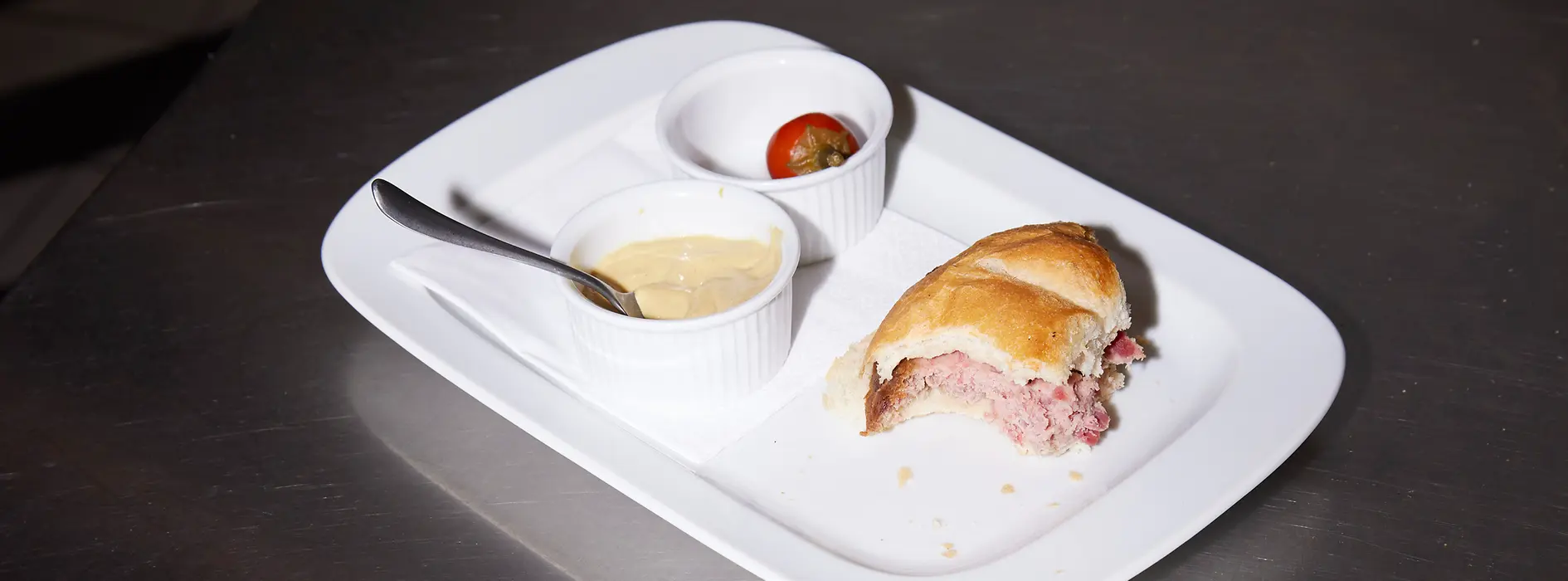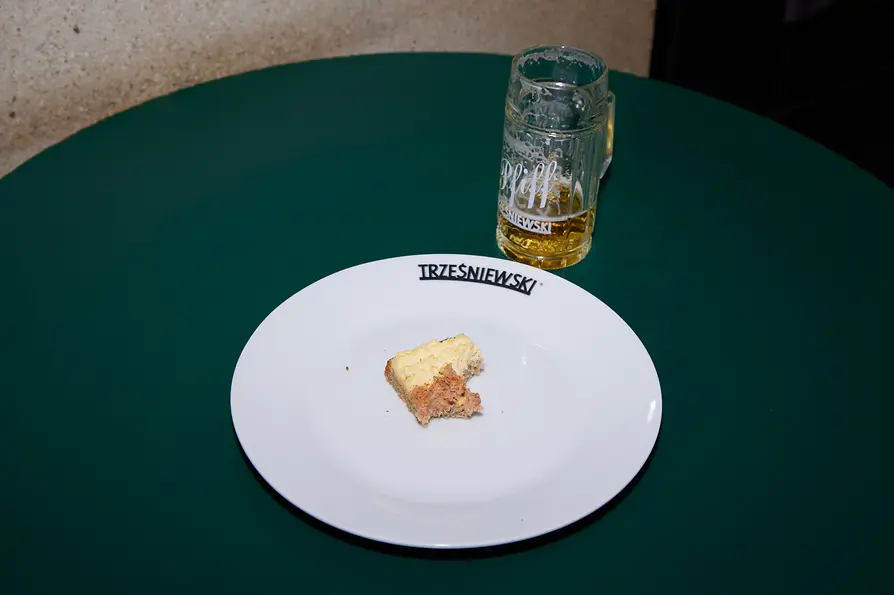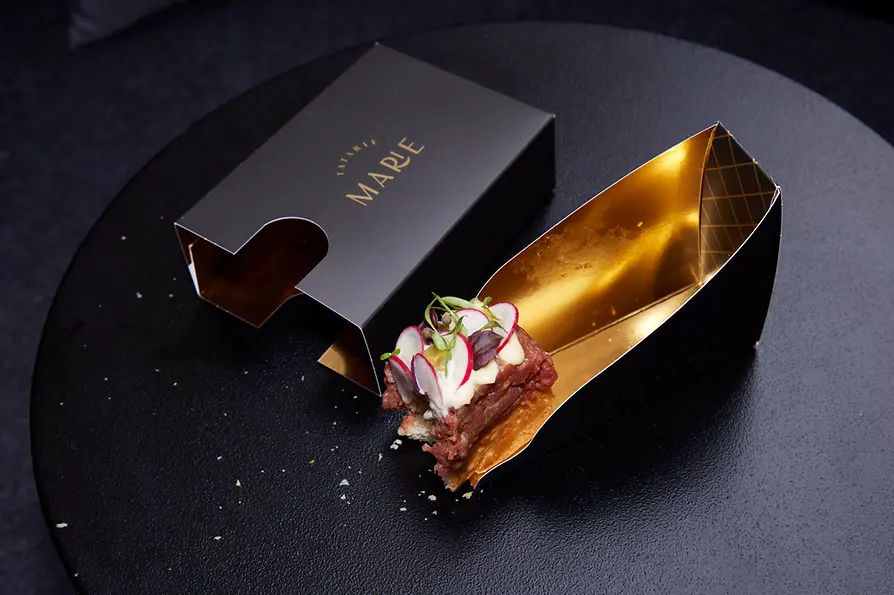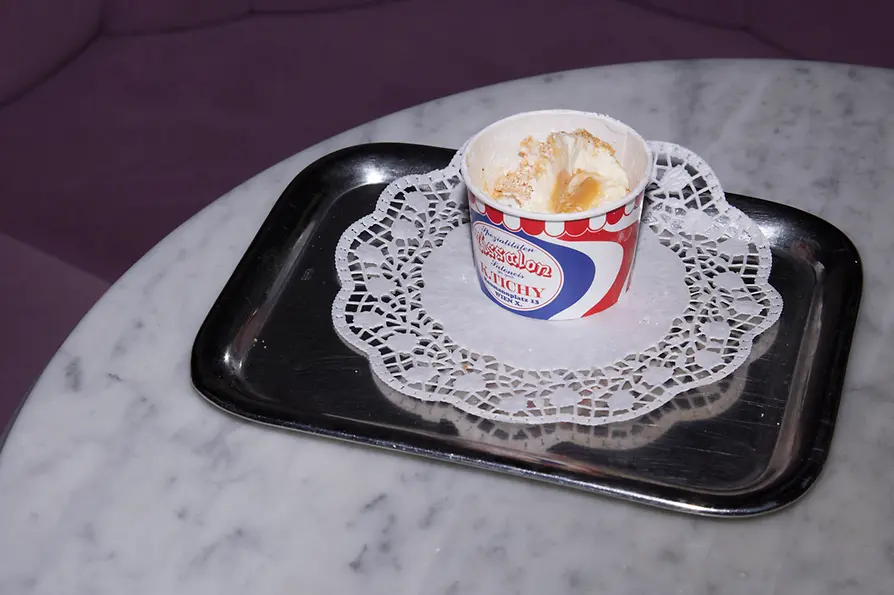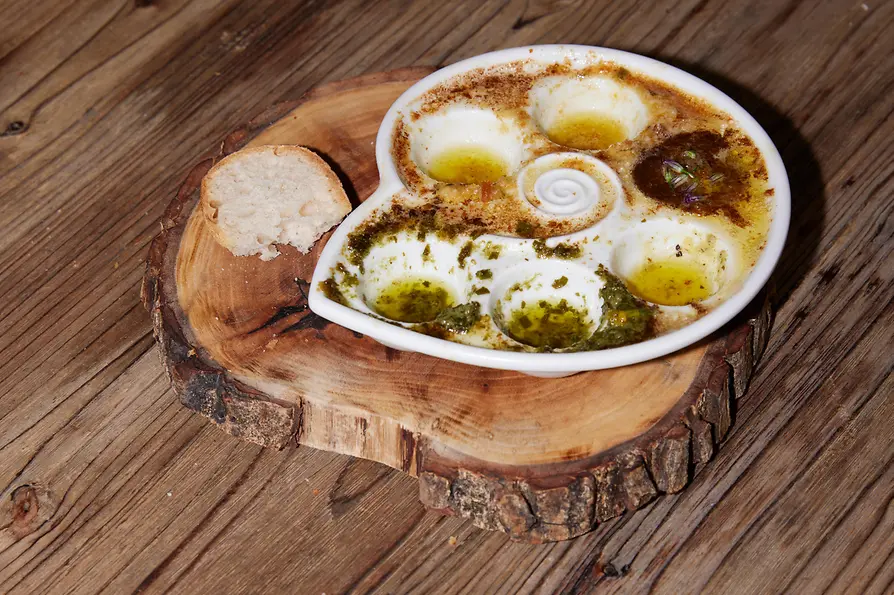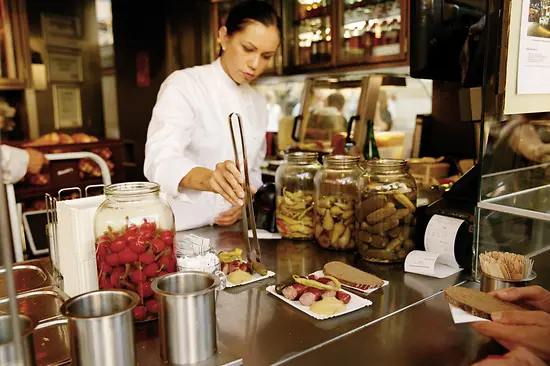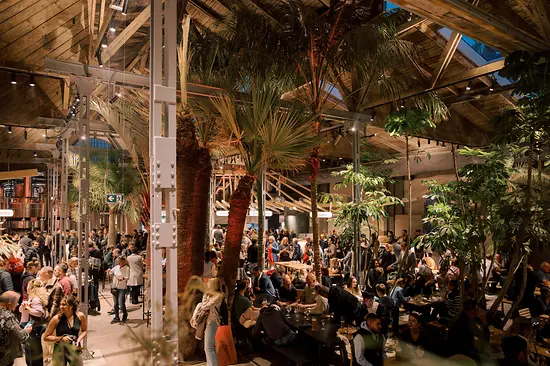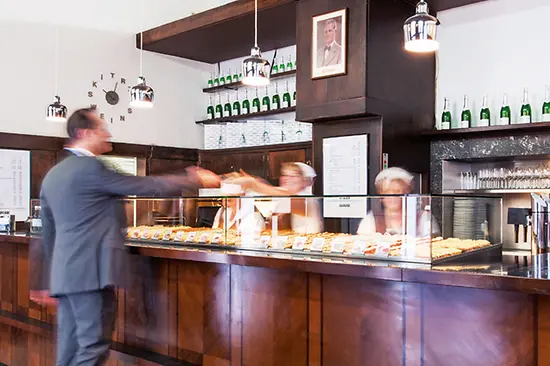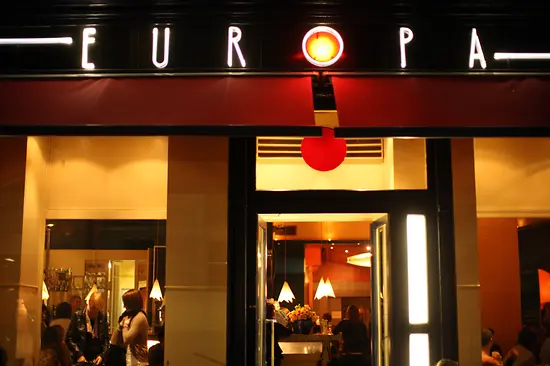Viennese Street Food: City Bites
Trzesniewski: Open Sandwich Specialists
A traditional Viennese company with a Polish name (pronounced “Tscheschnievski“) follows a concept that is as simple as it is ingenious – small slices of dark bread topped with spreads of all kinds. Something which has always made them the perfect option to bridge that snack gap. The most popular variety is Speck mit Ei (lightly cured smoked ham with egg). A colorful assortment of meat, fish, vegetarian and vegan spreads line the display cabinets. And 18 of the 25 varieties have remained unchanged since Trzesniewski first set up shop more than 100 years ago. Despite numerous attempts to enlist the support of machines to make the work easier, the trademark pattern in the topping is still created by hand with a fork. A slicer is all that is used – to ensure that each open sandwich is the same size. Traditionally, the sandwiches are washed down with a Pfiff: an eighth of a liter of beer, which seems to be just the right amount to go with the food. Trzesniewski’s oldest branch is located in the heart of the old town, just a stone’s throw from St. Stephen’s Cathedral. The other twelve are
scattered across the city.
- Dorotheergasse 1, 1010 Wien
- office@trzesniewski.at
- www.trzesniewski.at
Comments
More branches in Vienna
Opening times
- Mo - Fr, 08:30 - 19:30
- Sa, 09:00 - 18:00
- on holidays - Su, 10:00 - 17:00
Leberkäse Meatloaf: Sounds Weird, Tastes Fantastic
Part of Vienna like the Giant Ferris Wheel, the Danube, the waltz or the humble sausage: Leberkäse meatloaf. Don’t worry, the name is not derived from the contents (Leber = liver; Käse = cheese), but from the shape of the meat – in German “Laib”. And the “Käse” part originates from the similarity to a block of cheese. While it usually contains pork, sometimes beef is mixed in too for good measure. Gourmets even use veal, and horsemeat Leberkäse is a real specialty. In the classic version, a slice is added to a Semmel roll with – according to preference – mustard or ketchup before being garnished with additional flavors including horseradish, gherkins or a pickled Pfefferoni chili pepper. Leberkäs’-Semmel is sold at virtually all supermarkets as well as sausage stands and butcher’s shops. Particularly tasty examples can be found at the Praterwirt and Fleischerei Ringl. Both of them offer multiple varieties to choose from. The Käse-Leberkäse, i.e. normal Leberkäse but with cheese added to the mix, is an outstanding combination – both from a flavor and linguistic point of view!
- Praterstraße 45, 1020 Wien
- praterwirt.com
Opening times
- Gastwirtschaft Mo - Sa, 12:00 - 23:00
- Gastwirtschaft Su, 12:00 - 22:00
- Fleischerei Tu - Fr, 12:00 - 19:00
- Fleischerei Sa, 09:30 - 14:00
- Gumpendorfer Straße 105, 1060 Wien
- office@fleischerei-ringl.at
- www.fleischerei-ringl.at
Opening times
- Mo, 05:30 - 17:00
- Tu - Fr, 05:30 - 18:00
- Sa, 05:30 - 12:00
Tatarie Marie: The Raw Bistro
A toque-winning chef, an organic farmer, a creative director and a top restaurateur open a restaurant. No, this is not the first line of a bad joke, but the backstory for an innovative street food project that goes by the name of Tatarie Marie. This “patchwork family par excellence”, as the four refer to themselves, festoon brioche buns with all kinds of uncooked treats: whether it’s beef, veal, fish or vegetables – it’s all organic. The many flavors and toppings are also selected with just as much care as they are arranged before serving. Dominik Stolzer, who most recently worked as head chef at Hotel Sacher, is responsible for the flavors. All of the individual elements come together to create a feast for both the palate and the eyes. Located behind St. Stephen’s Cathedral, another eye-catching feature of this small eatery are the glowing, 3D-printed bull noses in the shop window. Tatarie Marie takes fast food to the next level across the board, proving that it can taste good without making any concessions when it comes to quality and sustainability.
- Freisingergasse 1, 1010 Wien
- servus@tatariemarie.com
- www.tatariemarie.com
Opening times
- Mo - Sa, 12:00 - 21:00
Demel Kaiserschmarrn: Street Food Served Through the Storefront
Many stories are told about the origin of the name Kaiserschmarrn. Most of them relate to Emperor (Kaiser) Franz Joseph and Empress (Kaiserin) Sisi. There is still disagreement about whether the spelling should be “Schmarrn” or “Schmarren”. What is certain, though, is that nobody’s going to turn their nose up at a portion of fluffy Kaiserschmarrn with Zwetschkenröster (plum compôte) and icing sugar! And especially not when it comes courtesy of former purveyor of confectionery to the court Demel on Kohlmarkt. The imperial family enjoyed Demel’s take on this dish at the nearby Hofburg. A while ago, the dessert stopped being the exclusive preserve of the café – it is now a popular to-go option for people to enjoy as they take a stroll around the first district. Typically for any street food, customers can watch it being made. Behind a large shop window, pancake batter sizzles away in several large pans until it is ready to be expertly “shredded.” And should it contain raisins? Well, opinions are divided here too.
- Kohlmarkt 14, 1010 Wien
- www.demel.at
Opening times
- daily, 10:00 - 00:00
Accessibility
no steps (Double swinging doors 115 cm wide)
Seeing eye dogs allowed
Wheelchair accessible restroom available.
Tichy’s Apricot-Filled Ice Cream Dumplings: Patented Ice Cream Sensation
For over 70 years, the Tichy family has been putting customers under its spell with its ice cream specialties in Vienna’s tenth district. But it is apricot-filled ice cream dumplings that this retro ice cream parlor is really known for even abroad. In 1967, Kurt Tichy Senior put his very own spin on the popular Austrian dessert of apricot dumplings. Of course, the core is still an apricot – albeit this time in ice cream form. And instead of potato dough, it is all encased in vanilla ice cream before being rolled in chopped nuts instead of breadcrumbs. Tichy even patented the manufacturing process. And nothing beats the original in terms of taste. To begin with, customers were pretty skeptical, and rumors abound that a number of uninformed individuals even threw the ice cream dumplings into boiling water. But it wasn’t long before they really took off and they’ve been a hit with patrons ever since. In summer, the red and white Tichy-branded tubs are impossible to miss on Reumannplatz. Tuck in before it melts!
- Reumannplatz 13, 1100 Wien
- www.tichy-eissalon.at
Opening times
- daily, 10:00 - 23:00
Viennese Escargots: Once Street Food – Now a Rarity
No, your eyes aren’t playing tricks on you! Considered a delicacy in fine dining circles, many still shudder at the very thought of it, even though Vienna was a hotbed for this specialty all the way up until the 20th century. We are, of course, talking about the snail. Considered neither meat nor fish back then, it was a popular fasting option. All social classes ate escargots – in dumplings, pastries or simply on their own. All variants were prepared at the snail market behind St. Peter’s Church in the first district where “Schneckenweiber” (snail women) would sell them as a snack to enjoy on the go – real street food. And now Andreas Gugumuck is breathing fresh life into this time-honored tradition with his snail farm on the outskirts of Vienna. In the in-house bistro, the snail is the star of the show. This forgotten classic is also finding its way back onto restaurant plates and the shelves of the city’s delis thanks to Gugumuck. From the street to the restaurant – and soon the other way round?
- Rosiwalgasse 44, 1100 Wien
- gugumuck.com
Opening times
- Mo - Fr, 08:00 - 16:00
